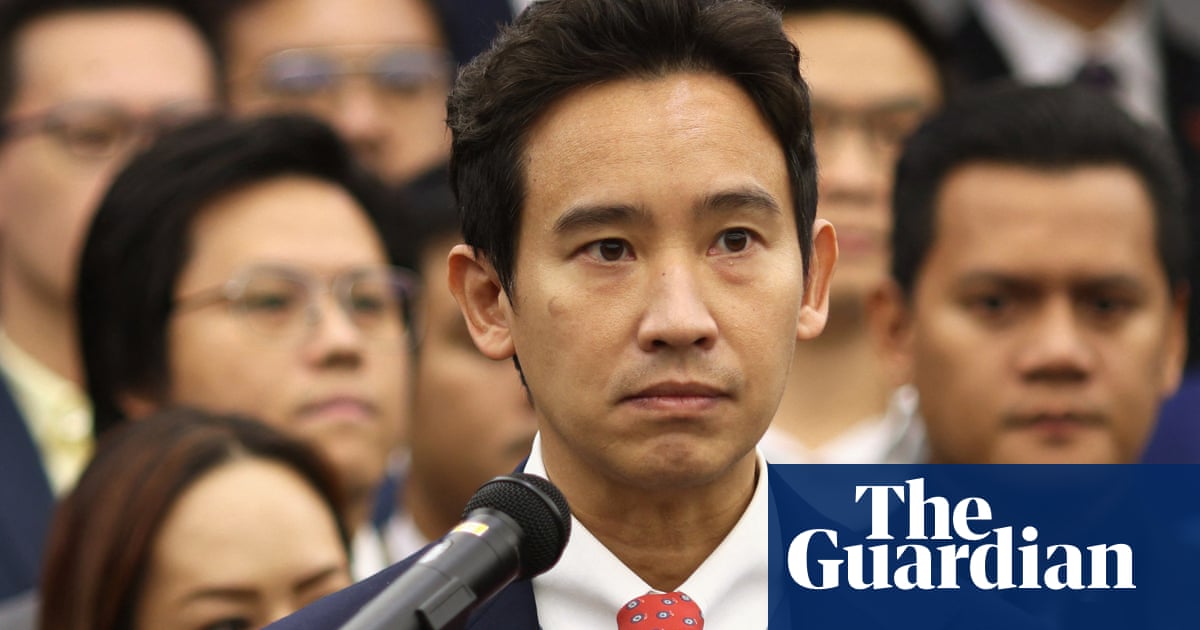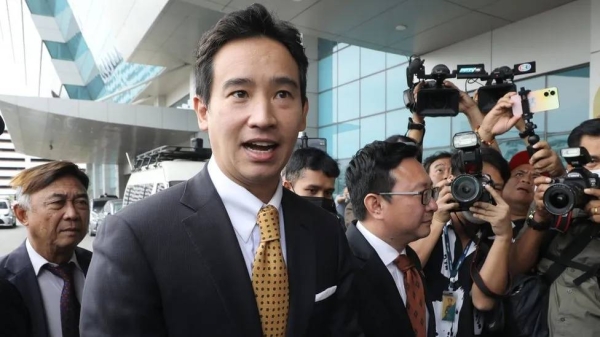
Thailand’s constitutional court has ruled that the opposition party’s pledge to reform the country’s lese-majesty law is unlawful and that it must cease such efforts.
The court ordered the Move Forward party and its leader, Pita Limjaroenrat, to stop all forms of communication aimed at bringing reforms to the law, under which criticism of the powerful royal family can lead to up to 15 years in prison on a single charge.
Pita and the party must “stop expressing opinions, speaking, writing, printing, advertising and communicating by any other means” in an attempt to change the law, the ruling said. The court added that “any action that is destructive to the institution is considered an attempt to overthrow it”.
Move Forward, a youthful, progressive party, won the most votes and seats in last year’s election after promising to reform the military, break up big business monopolies and to amend the lese-majesty law. However, the party was blocked from taking power by unelected senators, who are considered part of the military royalist establishment.
In response to the court ruling, Pita rejected claims the party had a hidden agenda or that it had sought to “cause any deterioration of the monarchy”. Thailand, he said, had now lost the opportunity to use parliament to discuss the matter with maturity.
Criticism of the lese-majesty law, and of the royal family, has long been considered taboo in Thailand, but in 2020 mass youth-led protests demanded changes to the role of the monarchy, including an end to lese-majesty. Their protests dwindled after the authorities launched a legal crackdown, charging the main protest leaders.
Since then more than 260 people, including children, have been prosecuted under lese-majesty, also known as article 112 of the criminal code. Cases can be filed by anyone, and the law is interpreted broadly. Last year, a man was given a reduced sentence of two years for selling satirical calendars featuring cartoon rubber ducks that a court said defamed the king. Another activist was sentenced in 2022 to two years for wearing fancy dress, which was deemed to be mocking the queen. Both are on bail while appealing against their convictions.
Earlier this month, a man was given a 50-year prison sentence for criticising the monarchy – the longest sentence handed down for the offence, according to Thai Lawyers for Human Rights.
Pita said that the court had “equated our attempted amendment of criminal code 112 lese-majesty law as a treason”. He added that the party’s efforts to reform the law were intended to protect Thailand as a constitutional monarchy and to “find a consensus to move forward politically”.
Move Forward’s predecessor, Future Forward, was previously dissolved by a constitutional court ruling for breaching funding rules, while its former leader Thanathorn Juangroongruangkit was disqualified as an MP for holding shares in a media firm, in a case he said was politically motivated.
Sunai Phasuk, a senior researcher on Thailand in Human Rights Watch’s Asia division, said: “Over the past three years, Thailand has witnessed rising demands for monarchy reform. The constitutional court has essentially disallowed that momentum to grow further.
“Today’s ruling bans the MFP’s election-winning manifesto to soften the draconian royal defamation law and put it in line with human rights standards, saying this campaign amounts to an attempt to overthrow Thailand’s monarchy rule.”
There was, Sunai added, a climate of fear as more and more people were prosecuted under lese-majesty.












